The Birkbeck Institute for the Study of Antisemitism holds seminars, workshops and conferences for scholars, and lectures, discussions and film screenings that are open to everyone.
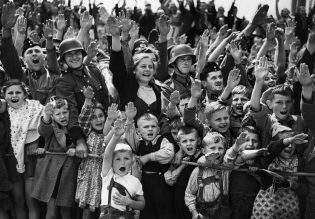
In this lecture, to mark Holocaust Memorial Day, Professor Michael Wildt explores antisemitism and violence in Nazi Germany. The idea of the Volksgemeinschaft – the national community, was already widespread during the Weimar Republic. Right-wing political rhetoric gave centre stage to the inclusion of all Germans.

Based on extensive fieldwork in Russian and Ukrainian archives, this paper has two aims: first, it offers a broad analysis of the nature of the articulation between antisemitism and the revolutionary process, focusing in particular on the phenomenon of Red Army pogroms; and second, it offers an analysis of Bolshevik attempts to arrest these articulations.

This award-winning film is a moving and intimate drama about a young novice nun in 1960s Poland who, on the verge of taking her vows, discovers from her only living relative that she is Jewish. So begins a quest to discover who she really is and where she belongs.
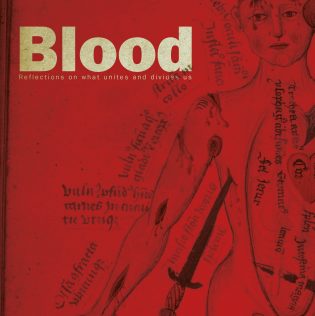
This lecture will deal with notions of racial purity, racial origins and the desire of pioneer anthropologists to “sort out” different racial groups. Professor Stone will conclude by connecting the discussion with today’s attempts to discover “Jewish genes” and to develop ethnically-directed medicine.

What is “philosemitism” and what role did it play in Western Europe from the end of World War Two to 1989, and in the European Union since its inception? “Philosemitism” is a concept fraught with ambiguities and often dangerously close to antisemitic discourse.

In this lecture the renowned scholar Sander Gilman asks what happens when religion and medicine compete or are allied; what happens when these two aspects of the public sphere overlap? In what contexts does circumcision occur as a health practice or as a risk? What are the implications of health-related circumcision for religious practice?

The complexity of Lanzmann’s role, and the place of his films in contemporary discussions about legacy and continuity in relation to Jewish history, will be the focus of the discussion following the film’s screening.

This talk by Dr. Diana Popescu, will look at these questions from the multiple perspectives offered by memorial museums, contemporary artists and visitors from Poland and Germany.

In this talk, Esra Ozurek examines how the struggle against antisemitism in Germany depicts Muslims as outsiders and Muslim nations as inherently prone to antisemitism.
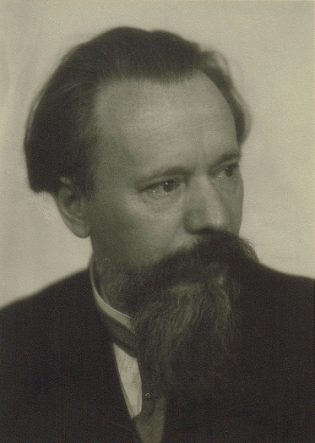
In this lecture Todd Endelman explores how the persistence of hostility to Jews in social and cultural life, even in liberal states, influenced the emotional life and self-understanding of Jews in Western and Central Europe and the United States, and how this, in turn, contributed to indifference to Judaism and alienation from Jewish communal attachments.

In this talk Alan Johnson will map the contexts and the presences of the discourse during Operation Protective Edge, before examining a debate that took place in the UK about the meaning of the discourse; specifically, whether the Inversion should be considered merely offensive and hurtful or, also, as antisemitic discourse.

The aim of the workshop is to bring together experts in a range of fields to explore how history, in its broadest political, cultural and social senses, can usefully be employed to inform our understanding of the current refugee crisis and help shape our responses to it.

This workshop will explore how blood, in its regulation and its representation, has been interpreted and traded as a symbol between Jews and non-Jews, and in particular between Christians and Jews, through the centuries – from the biblical past to the present day.
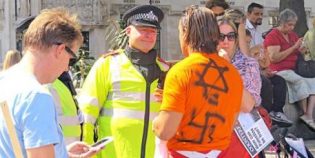
The aim of the symposium is twofold. First, it is to consider those aspects of discourse which offend Jews. Second, in view of growing concern over antisemitism, the law should be augmented or amended to protect Jews further or whether current laws that target discrimination and prejudice give adequate protection.

When trials against Jews for the “ritual murder”of Christians reappeared in Central Europe in the late nineteenth and early twentieth century they seemed to be a throwback to the Middle Ages.

This paper will reflect critically on the impact which experiential forms of engaging with this history have upon contemporary audiences, and on the broader challenges of communicating about the Holocaust without it becoming a moral lesson, or a cultural commodity.
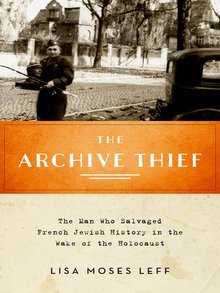
Lisa Leff explores the shifting contours of Jewish nationalist ideas in the mid-twentieth century, and grapples with the vexing problem of where the material remnants of the Jewish past are best kept.

Spencer Sunshine will talk about these new forms of “unorthodox” fascism and their similarities and differences with European movements, based on his forthcoming book for Routledge’s Fascism and the Far Right series.
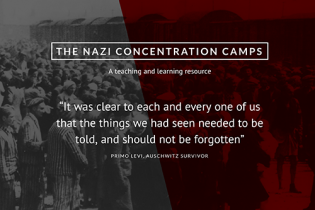
Is Holocaust education failing? Many children currently leave school without a clear understanding of the Holocaust: they are confused about the perpetrators, about the concentration camps and their function.

This talk traces the entanglement of Jewish and Romani (Gypsy) history in the twentieth and early twenty-first century, from the killing fields of Hitler’s Europe to the postwar creation of archives, debates over compensation, and contemporary Holocaust memorials.
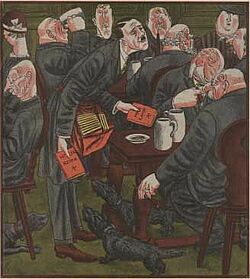
In Germany, until this year, it was illegal to print copies of Adolf Hitler’s Mein Kampf. The State of Bavaria held the copyright and banned publication of the book. In January 2016 the copyright expired and the Institute for Contemporary History in Munich published a scholarly edition which runs to two enormous volumes, complete with a lengthy introduction and copious annotation.

This conference, will explore the multifaceted aspects of the question of Jewish loyalties. Starting with the Dreyfus affair, it will consider the degree to which individual Jews and Jewish communities in Europe, the US and elsewhere engaged with the question of loyalty before, during and after the First World War, in a broad interdisciplinary and transnational context.
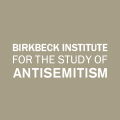
The Birkbeck Institute for the Study of Antisemitism is a respected source of independent advice and comment on antisemitism, contributing to policy formation and public debate.